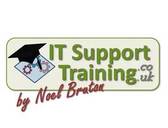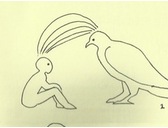Found 6497 spaces (searched "")
Found 6497 spaces
-
Oficina de webconferênciaPrivate space with 1 membersGrupo: 23/11 19h Canal de comunicação entre alunos e tutor.
-
ShareContentPrivate space with 1 membersThis is to share the screen content
-
Cuidado al Adulto MayorPrivate space with 1 members.
-
Diplomado en Fundamentos Básicos de SARLAFTPrivate space with 1 membersNueva forma de aprendizaje
-
Diplomado en Pedagogía Basada en CompetenciasPrivate space with 1 membersNueva formas de aprendizaje
-
Gestión de Enfermería en el Bloque QuirurgicoPrivate space with 1 members.
-
Seguridad del PacientePrivate space with 1 members.
-
webconference112Private space with 2 memberswebconference 112
-
GO IdiomasPrivate space with 1 membersGo Idiomas
-
Space4AmigoPrivate space with 1 memberstest?
-
SomenewtestPrivate space with 1 membersSecond room
-
JoePrivate space with 1 membersA place for adults to meet for English lessons of all kinds- IELTS preparation, business, academic, general, discussion.
-
InvvenseaEduPrivate space with 1 membersElectronics
-
Noel Bruton's IT Support Management TrainingPrivate space with 1 membersAn Mconf space for delivering real-time webinars and management coaching sessions. More from www.itsupporttraining.co.uk
-
Ethics of CarePrivate space with 2 membersTransgressive/Transformative learning or ‘t-Learning’ research involves multiple actors engaging with complex social-ecological local issues and settings. This requires ethical procedures that accommodate the type and intent of the research, and that take into account power relations and dissonance within multi-actor settings. Due to the potentially transgressive nature of these social settings, moral dilemmas arise including contradictory local and global stakeholder interests situated in cross-sectoral spaces of power. It is therefore essential that solid processes of ethical governance are in place from the start. Besides ensuring that diverse national ethical standards concerning informed consent, voluntary participation, confidentiality, and integrity are maintained, this expanded framework ensures continuous review and assessment of moral dilemmas following a ‘crystallisation’ protocol guidance for multi-actor generative research in open systems drawing on the work of Ellingson (2009), McGarry (2014), Kulundu (2010, 2012), Bassey (1999) and (Scharmer 2007). We situate the ethical engagement for ‘t-learning’ in the primacy of care, which is grounded on the traditional ethical approach of do-no-harm. This research commons space does not compare one approach as more applicable than another, but rather sees caring and do-no-harm as mutually beneficial, and widening the moral efficacy of the research. The ethics of care focuses (but is not limited to) the intuitive, imaginative, attentive and empathetic capacities of the researcher, and thus revolve around the concept of moral Intuition or moral imagination (McGarry, 2013). The ‘Do-No-Harm’ approach focuses on ensuring harm and risk are accounted for, and avoided at all costs, and relies on a foundation of moral imperatives, and predetermined ethical design. Please see the documents attached which are linked to google doc editing platforms for you to contribute.













